It is important to always incorporate fun things and play into every dog training session. Incorporating a few minutes of play time before the lesson begins can do wonders for your dog's attitude. Ending each dog training session with a few minutes of free play time is a great way to end on a positive note. It will also help your dog associate obedience training with fun.
It is important to keep the dog training sessions short, especially in the beginning. After your dog has been responding regularly, the treats and food rewards can be slowly reduced. It is important to continue to provide these food rewards, but it may no longer be necessary to provide as much, as often. After awhile, it will not be necessary to give your dog treats every single time it responds as requested.
In general, it should only be necessary for your dog to receive a food treat one out of every five times it obeys. The other four successes can be rewarded with praise and scratches.
Many reward training enthusiasts are less enthusiastic about other methods of dog training, such as the traditional leash and collar method. However, the best approach to training any individual dog is often a combination of leash/collar training and reward training.
In addition, a dog training method that works perfectly for one dog may be totally inappropriate for another, and vice versa. Some dogs respond wonderfully to reward training and not at all to leash and collar training, while others respond to leash/collar training and are not at all motivated by reward training. Most dogs fall somewhere in the middle of these two extremes.
It is important to remember that dogs are constantly learning, whether a formal training session is in process or not. Your dog is always learning something from you, be it good or bad. Therefore, it is imperative to make each and every interaction with your dog a positive one.
Puppies should be rewarded for good behaviors and not rewarded for being a delinquent. Do not reward a puppy just because it has a cute behavior. For example, it may be cute when a puppy jumps on people, but this cuteness will wear off immediately if your puppy grows into a 100 pound dog! So it will be wiser to reward your puppy for sitting instead of jumping on people.
If you are bringing home a new puppy for the first time, it would be great if everyone in the family is present. It would also be best to make sure that the house environment is calm, unlike during festive or holiday seasons. Otherwise, there will be too many distractions and the puppy will not get the attention it needs.
Before you begin any training for your puppy, the very first step is to gain its respect and confidence. Do not mistake love and affection for trust and respect. It is always great to shower your puppy or dog with love and affection. But it is equally important to gain your pet's confidence and respect.
Initial training sessions should be short as puppies or even older untrained dogs have very short attention span. Keep the training sessions between 10 and 15 minutes at a time. It is better to keep it short and fun, as compared to a long and unproductive training session. Always remember to start and end all training sessions on a high and positive note. If the sessions are negative, the puppy or dog will begin to dread each session. The more variety you provide, the more enjoyable the training sessions will be for you and your dog. Positive associations to training will result in a happy and healthy dog that is easier to train and more willing to please.
In a nutshell, here are some key points to always remember:
positive reinforcements and associations with training
be consistent in the training
distraction training
ignorance works too - do not approve unwanted behavior although you may mean well
do not rush the training process it's better to get it right the first time
have loads of fun!

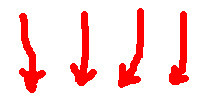 Stop Dog Digging: Find Fun And Easy Ways To Train Your Dog
A lot of people are trying to maintain a clean home these
Stop Dog Digging: Find Fun And Easy Ways To Train Your Dog
A lot of people are trying to maintain a clean home these
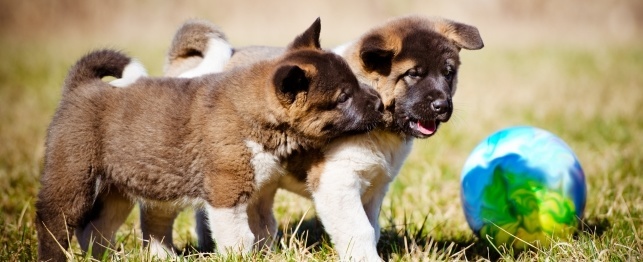 Doggie Play Dates: Are They for Your Dog?
Doggie Play Dates: Are They for Your Dog?
Doggie Play Dates: Are They for Your Dog?
Doggie Play Dates: Are They for Your Dog?
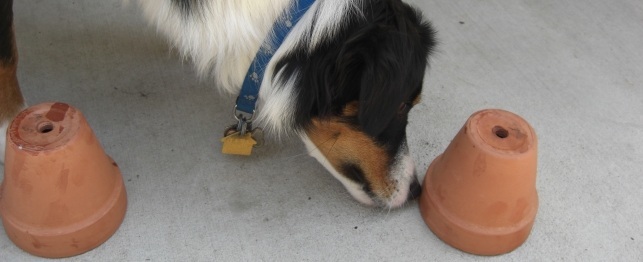 Flower Pot Scenting Game for Dogs
Flower Pot Scenting Game for Dogs
Flower Pot Scenting Game for Dogs
Flower Pot Scenting Game for Dogs
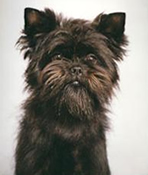 NILIF Behavioral Shaping For Dogs
Why You Should Consider NILIF
Do you have a stubborn, pushy
NILIF Behavioral Shaping For Dogs
Why You Should Consider NILIF
Do you have a stubborn, pushy
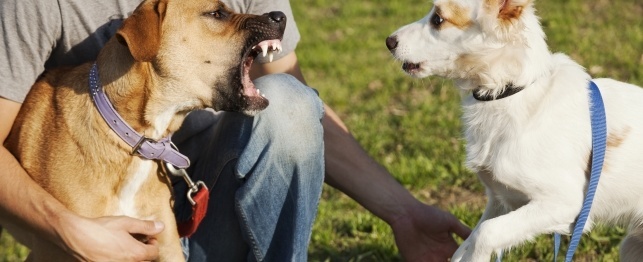 Dog Parks and Bites: What You Need to Know
Dog Parks and Bites: What You Need to Know
Dog Parks and Bites: What You Need to Know
Dog Parks and Bites: What You Need to Know